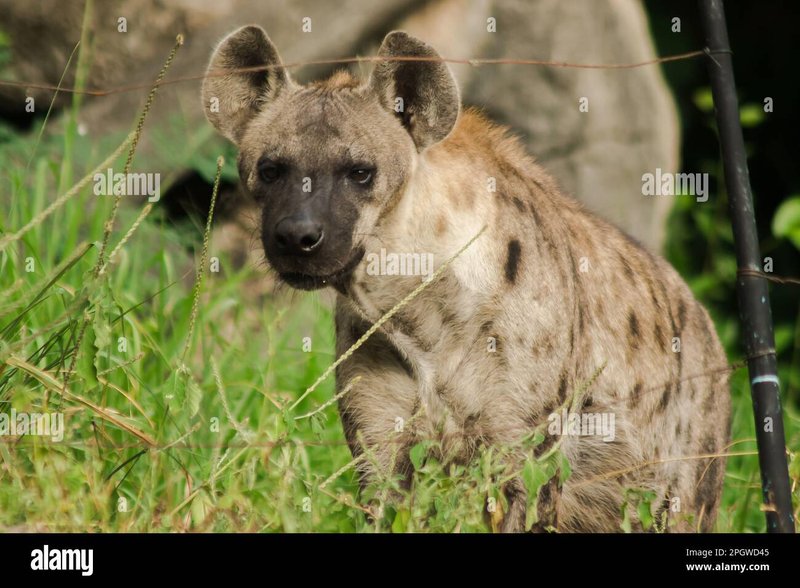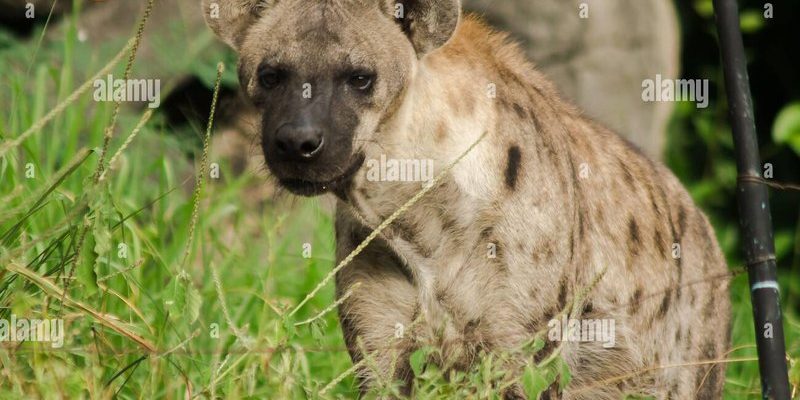
Imagine sitting across from a friend at your favorite coffee shop, discussing a quirky yet fascinating animal. You delve into the conversation about hyenas, and suddenly the myths start spilling out: they’re scavengers, they laugh maniacally, and they’re not even related to dogs! It’s easy to see how these ideas get tangled up in our minds. Let’s clear the air and explore the truth behind these fascinating creatures, breaking down the common myths that follow them.
Hyenas Are Just Scavengers
One of the most prevalent misconceptions about hyenas is that they are merely scavengers, living off the leftovers of other animals’ meals. Sure, they do scavenge, but that’s far from the whole story! Hyenas, especially the *spotted hyena*, are skilled hunters, making them one of Africa’s most effective predators.
In fact, studies show that spotted hyenas hunt successfully about 50% of the time. They often work in groups, using teamwork to take down larger prey like wildebeest and zebras. Imagine a football team coordinating a play; that’s how hyenas strategize their hunts!
Moreover, a hyena’s powerful jaws can crush bones, allowing them to access nutrition that many other predators miss. So, next time you hear someone call them just scavengers, remind them that these animals are skilled hunters who play a critical role in their ecosystems.
Hyenas Are Related to Dogs
You might be surprised to learn that hyenas are not closely related to dogs at all. Even though they share certain traits, such as a similar body shape or social behavior, their closest relatives are actually within the *civets* and *mongooses* family.
Here’s the thing: hyenas belong to a group called Hyaenidae, which has been around for millions of years. They diverged from the dog lineage long ago, and this actually places them in a unique evolutionary position. If you were to compare their DNA, it would show more similarities to cats than to dogs, which can feel a bit mind-boggling. This misunderstanding might come from the way they vocalize and their physical appearance, but it’s crucial to get the facts straight.
So, if you hear someone calling a hyena a “dog,” you can step in and share the truth. They’re not just wild dogs; they’re part of their own distinct family with a rich history.
Hyenas Are Cowardly
Another common myth is that hyenas are cowardly animals that rely on their numbers to intimidate others. This is simply not true! While it’s true that they often hunt in packs, this behavior isn’t a sign of cowardice; it’s about survival and efficiency. Think of them as highly social creatures that thrive on teamwork.
Hyenas are incredibly resilient and tough. When they hunt, they display both bravery and intelligence, navigating dangers and challenges while pursuing their prey. They can even take on larger animals and defend their territory fiercely. These social dynamics allow them to adapt and thrive in the challenging environments of Africa, where competition for food can be fierce.
In fact, when a hyena confronts a threat, it’s often the most aggressive individuals that come to the fore. They may seem mischievous and mischievous, but don’t confuse that with cowardice. They’ve got a bold spirit that makes them powerful hunters and defenders of their territory.
The Laughing Hyena Myth
One of the quirkiest traits associated with hyenas is their infamous “laugh.” This sound is often misunderstood as a sign of their merriment or some kind of sinister behavior. However, the truth is that this “laughing” is actually a form of communication among hyenas, expressing excitement, anxiety, or even frustration.
Imagine being at a party where everyone is talking loudly over one another. That’s a bit like what’s happening in a hyena clan! Their vocalizations serve various purposes, from coordinating hunts to warning each other of danger. This unique call can carry over long distances, making it an effective tool in their social structure.
So, when you hear hyenas “laughing,” think of it as a form of social interaction rather than an indication of light-heartedness. It’s their way of staying connected within their group, and it’s quite fascinating when you dive deeper!
Hyenas Are Dangerous to Humans
You might picture a hyena as a fearsome beast lurking in the shadows, ready to pounce on any unsuspecting human. While it’s true that they can be aggressive when threatened, hyenas generally avoid human interaction. They prefer to stick to their natural habitats and are much more likely to steer clear of people if given the chance.
In many regions, the real danger is often posed by humans encroaching on their territories. Habitat destruction and hunting have led to a decline in their populations, making them more stressed and potentially dangerous when cornered. Remember, animals like hyenas are just trying to survive in a rapidly changing world.
Human-wildlife conflict can happen, but it’s essential to approach these situations with understanding. Hyenas are not out to get us; they’re just trying to live their lives. Educating ourselves about their behaviors can help foster a more respectful coexistence.
Hyenas Are Lowly Creatures
It’s easy to overlook the vital role hyenas play in their ecosystems and label them as “lowly.” But this perspective misses a significant part of the story. Hyenas are not just scavengers; they are key players in maintaining the balance of the ecosystem.
Strong scavengers help control animal populations and clean up carrion that could otherwise spread disease. By taking on this role, hyenas contribute to the health of their environment. Think of them as nature’s recyclers!
Additionally, the social structure of hyena clans showcases complex behaviors and emotional intelligence. They communicate, play, and even engage in nurturing relationships, proving there’s so much more to their lives than meets the eye.
Recognizing these attributes can change how we perceive hyenas. They’re not just lowly creatures; they’re fascinating animals with rich social lives and ecological importance.
Hyenas often get a bad rap, but their reputation is built on a foundation of myths and misconceptions. By understanding the truth behind these remarkable animals, we can appreciate their role in the wild and acknowledge their unique characteristics. So the next time you hear someone talk about hyenas, you’ll know the facts and can help debunk those pesky myths.
In truth, hyenas are much more than what many people think. They’re skilled hunters, unique in their evolutionary path, and have vibrant social lives. Let’s embrace the wild world of hyenas, shedding light on their misunderstood nature. Who knows? You might find yourself fascinated by these remarkable creatures that are so often misunderstood.

